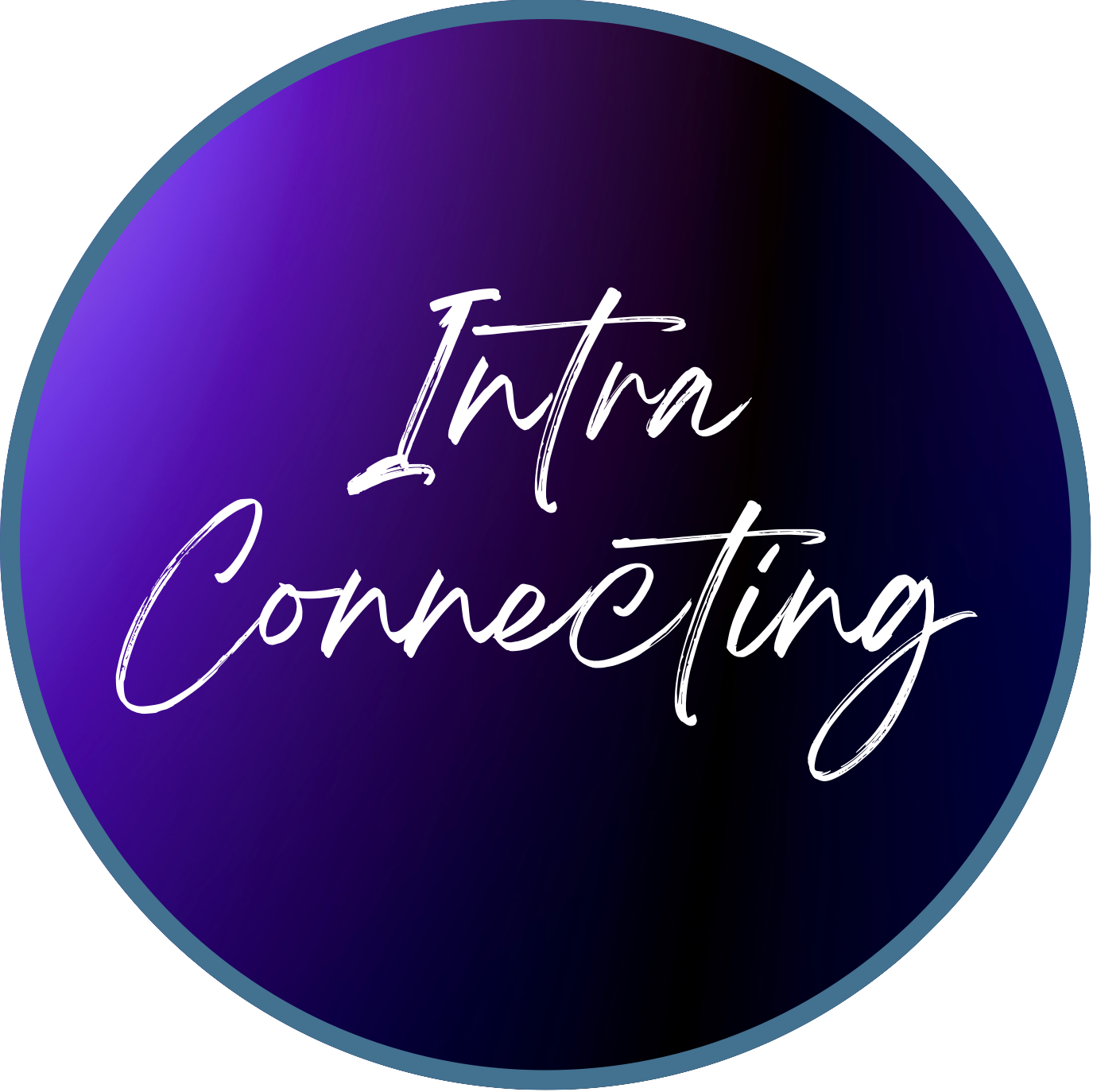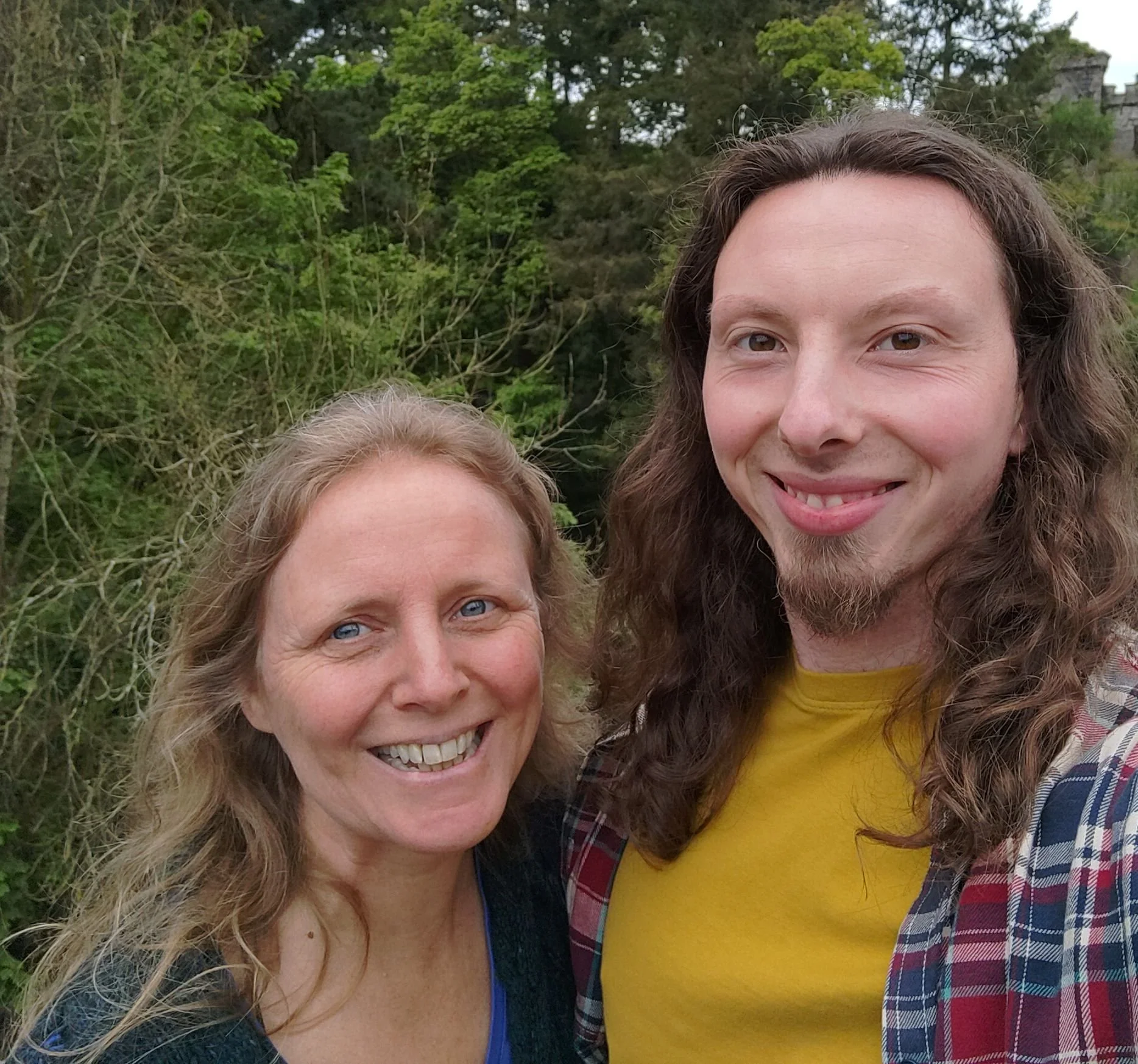Catching myself…before I said something I’d regret!
Despite years of practising Nonviolent Communication, I still find myself falling into right-wrong thinking, then noticing again and again how ubiquitous our learned habits of viewing the world through that lens can be!
My story:
Yesterday, Aaron and I went mushroom foraging, one of our favourite shared hobbies. We'd been walking for about an hour, scouring the ground in a forest of native beech and oak trees. The perfect environment, or so we thought, for wild mushrooms. But we'd found nothing. Our feet were crunching through the colourful autumn leaves which were everywhere, but there was barely a mushroom to be seen.
Until I ducked my head into a thicket of densely packed trees, and suddenly the ground was covered with them. Excitedly, I gathered a few edibles for my basket, and took photos of the beautiful Amanita Muscaria (the famous red and white toadstool from fairy tales).
And then I spotted a bit of purple on the underside of a mushroom that I hadn't identified yet. Wood Blewit. I instantly thought of a mushroom I've seen pictures of, but had never found before.
I picked a couple with the intention of studying them later (as there are many toxic wild mushrooms, we don't eat anything unless we're 100% sure we can identify it, and we've also thoroughly checked whether there are any poisonous look-alikes).
We didn't get home until late last night, but before going to bed I read up on some of the identifying features of Wood Blewit, while Aaron set up the mushrooms to collect spore prints overnight to help identify them.
This morning I bounded downstairs to compare the mushrooms to what I'd read, but when I saw them I felt a rush of dismay. Aaron had cut the stems off all the mushrooms to take the spore prints, while I’d wanted the stems still attached to help with ID-ing them. My mind straightaway skipped to thoughts of what he 'should' have done differently: he 'should' have taken spore prints of only some of the mushrooms. He ‘should’ have done things the way I would have done them! Basically, I was telling myself there was a 'right' way to do things, and that he wasn't living up to my expectations of how to behave.
As you can imagine, if I'd got stuck in this way of thinking, things probably wouldn't have gone well between us. I might have given out to him about doing it 'wrong', or I might have said nothing, but silently held on to resentment towards him. Either way, it was unlikely to bring much connection between us!
Fortunately, I was able to notice that I'd slipped into this way of thinking, and realise that what I was telling myself wasn't the truth. It wasn't true that what he'd done was 'wrong'. He’d acted in a way that made total sense to him, even if I wasn’t quite clear about what he’d been thinking at the time. I still had a bit of work to connect to what was really going on for me, but at least I was aware that it wasn't Aaron's fault that I was feeling out of sorts!
I was still feeling disgruntled, and I felt distant towards Aaron for five or ten minutes until I checked in with myself to figure out why such a small thing was bothering me. I knew I was disappointed because I was wanting to learn more about these mushrooms. But there was more to it than that. When I paid attention to the voice in my head that had been telling me Aaron was wrong, I noticed it was also telling me that it was too late, and there was nothing I could do.
Identifying these thoughts helped me realise that I was also feeling frustrated and hopeless, and what I was really longing for was choice. As soon as I recognised this I felt my body relax as the discomfort started to shift. I was now able to think of loads of other ways to meet my need for choice, as well as loads of ways in which my need for choice is fully met in my relationship with Aaron.
One of the things I find so powerful about Nonviolent Communication is the way it helps us to recognise our right-wrong thinking for what it is, and translate it into more connecting ways to relate to each other. It’s not that we’re necessarily ever going to stop having these types of thoughts, but at least we’re able to notice them, and make more conscious choices about how we communicate.
This is also one of the main themes of my poem, Division. I believe that this type of right-wrong thinking is one of the root causes of a lot of the things that create suffering in the world - both within our interpersonal relationships and as the stimulus for prejudice, political polarisation, and even wars. I long for a world in which we all try to take responsibility for our own feelings and needs. A world where we recognise our shared humanity, and move away from the type of thinking where we judge and criticise others, or look for someone to blame. The kind of thinking that reinforces division and separation in the world.
I got a bit of funding recently from Tipperary Arts Office to create a video of my poem - this is a first for me, as whenever I’ve recorded a poem before it’s just been me speaking to the camera, so it was exciting to incorporate music and visual elements to (I hope) complement what I was trying to convey in the poem. I’m quite proud of it, and excited to share it with you. Have a look at it here (it’s only a few minutes long).
And, as always, if you want to learn more about NVC, consider coming along to one of our workshops.
written by Mel White


